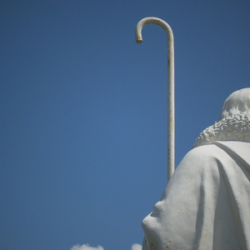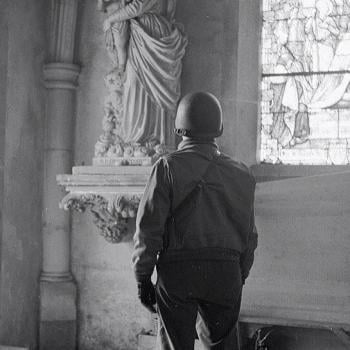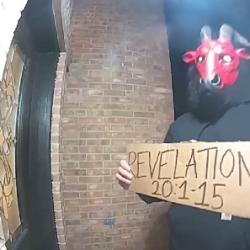The experience of being able to see for the first time! The text treats it such a succinct, matter of fact manner that it almost seems beside the point. "Then he went and washed and came back able to see" (9:7).
Dealing with the Gift of Sight
And it is then that his troubles really begin. How could he have anticipated that his healing by Jesus would set off such a string of unintended consequences to deal with? He got his sight, but it came with a whole lotta hassle. The title of the compilation album by the Grateful Dead comes to mind when I think of the ordeal of the man born blind in John 9: "What a long, strange trip it's been." He is badgered by the Pharisees not once, but twice. They question whether his claims of being blind were true to begin with and then haul his parents in and intimidate them. Finally, on his second interview, when he stands up to them (vv. 30-34), they drive him out.
One of the complaints about email and phone conversations is that you can't see the other person's face. Face-to-face and Skype enable us to see facial expressions and read the cues more clearly.
I wonder if the man born blind wished that he hadn't had the images of the angry, twisted faces of the Pharisees to deal with.
But he does deal with them. He rises to every occasion. The man born blind doesn't just receive the gift of sight to be enjoyed as his own possession, to be added to the other four senses. He uses it as a means of encouraging others to see as well. Here I speak spiritually and not physically. He repeatedly points people toward the reality of the event that occurred and whose hands did the healing. He meets his neighbors' incredulity by reporting "just the facts." "Yes, I am the same guy who used to sit and beg and yes, the man called Jesus is the one who gave me the gift of sight" (9:11).
I am impressed by the way the man born blind dealt with the pressure to lie, to say, "I wasn't really blind. He isn't really the Son of God. He didn't really change my life. He isn't really the one I worship." It was just a hoax and now I'm back to begging by the roadside, pretending to be blind.
When challenged the first time by the Pharisees, he boldly proclaims, "He is a prophet" (9:17).
When his parents, intimidated by the Pharisees, pass the buck back to him, he lobs the question of Jesus being a sinner back at the Pharisees and points them back to the facts. "One thing I do know, that though I was blind, now I see." He mocks them for their persistent interest in the details of his healing (9:27) and asks if they would like to become Jesus' disciples. In verses 30-33 he takes them to school in the boldest of terms: "Here is an astonishing thing! You do not know where he comes from and yet he opened my eyes. We know that God does not listen to sinners, but he does listen to one who worships him and obeys his will. Never since the world began has it been heard that anyone opened the eyes of a person born blind. If this man were not from God, he could do nothing" (9:30-33).
All they can come up with is: "You were born entirely in sin, and you are trying to teach us?" And they drove him out.
It seems to me that the man born blind must have had pretty keen spiritual sight long before he received his physical sight. Because he uses the added gift of physical sight to read the faces of Jesus' detractors and to come to the same conclusion as Jesus about them, expressed in the common secular proverb: "There is none so blind as those who will not see" (9:39).
As for him, his story ends with an exclamation point of faith! He offers the ultimate proof in the Gospel of John that one has clear spiritual sight: "Lord, I believe" (9:38).
As we leave him behind and move on to chapter 10, I hear the strains of "Amazing Grace," with the man born blind leading the singing.
Amazing Grace, how sweet the Sound
that saved a wretch like me.
I once was lost but now am found,
was blind but now I see.
Sources Consulted
Frederick W. Schmidt, The Dave Test: A Raw Look at Real Faith in Hard Times (Nashville: Abingdon Press, 2013).
Raymond Brown, The Gospel of John, I-XII (New York: Doubleday and Company, Inc., 1970).





